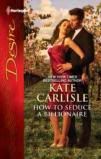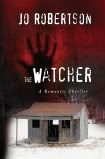"Get your head out of the clouds."
"Where were you--Mars?"
"Act like you have some sense."
 Have you ever heard the above applied to you or someone in your vicinity? Usually a dreamer? A reader or writer? Readers tend to be thinkers and, at times, dreamers. Writers tend to be both. Sometimes the people around us don't get it, which can make for difficult moments. Yet the realms of our choice remain attractive havens.
Have you ever heard the above applied to you or someone in your vicinity? Usually a dreamer? A reader or writer? Readers tend to be thinkers and, at times, dreamers. Writers tend to be both. Sometimes the people around us don't get it, which can make for difficult moments. Yet the realms of our choice remain attractive havens. During the last month, three people died who shaped very different imaginary realms. All left lasting imprints in the worlds they shaped. Most familiar to romance readers, of course, will be the wonderful Phyllis A. Whitney. Most of us probably met her through her young adult novels, but she also wrote adult and juvenile mysteries. Whitney was honored with a special nod to her body of work at last year's Romance Writers of America national conference in Dallas. She was a Grand Master of the Mystery Writers of America for lifetime achievement. Her website, http://www.phyllisawhitney.com/, notes that her books were published in more than thirty countries. Last year, her 1956 novel about the San Francisco earthquake of 1906, The Trembling Hills, was reprinted as a classic in the Hodder Great Reads line in the United Kingdom. Two of her other novels, Daughter of the Stars and The Singing Stones, were recently reissued, and Amazon.com lists several of her books as available.
During the last month, three people died who shaped very different imaginary realms. All left lasting imprints in the worlds they shaped. Most familiar to romance readers, of course, will be the wonderful Phyllis A. Whitney. Most of us probably met her through her young adult novels, but she also wrote adult and juvenile mysteries. Whitney was honored with a special nod to her body of work at last year's Romance Writers of America national conference in Dallas. She was a Grand Master of the Mystery Writers of America for lifetime achievement. Her website, http://www.phyllisawhitney.com/, notes that her books were published in more than thirty countries. Last year, her 1956 novel about the San Francisco earthquake of 1906, The Trembling Hills, was reprinted as a classic in the Hodder Great Reads line in the United Kingdom. Two of her other novels, Daughter of the Stars and The Singing Stones, were recently reissued, and Amazon.com lists several of her books as available.According to the obituary in the New York Times, Whitney's last novel,Amethyst Dreams, was published in 1997, when she was 94. A quick check of the paper's archive reveals that she had numerous titles on the paperback bestseller lists. Whitney lived to the grand age of 104.
 Way back in 1974, two friends found a way to turn the perceived weaknesses of dreaming and imagination into strengths and to create a community of the imagination. They made these traits not only acceptable but the currency of the realm in a kingdom called Dungeons and Dragons. Their names were Gary Gygax and Dave Arneson. Gygax died last month. I'm not a gamer, so we won't be exploring that in much detail, but I am a dreamer, a reader, and a writer. So I'd like to take a minute and tip my hat to Mr. Gygax's memory.
Way back in 1974, two friends found a way to turn the perceived weaknesses of dreaming and imagination into strengths and to create a community of the imagination. They made these traits not only acceptable but the currency of the realm in a kingdom called Dungeons and Dragons. Their names were Gary Gygax and Dave Arneson. Gygax died last month. I'm not a gamer, so we won't be exploring that in much detail, but I am a dreamer, a reader, and a writer. So I'd like to take a minute and tip my hat to Mr. Gygax's memory. All of us have particular kinds of imaginary realms we prefer. I like knights and dragons and swords and spaceships and women who take the driver's seat. Any combination or version of the above is acceptable. Maybe that's because I grew up in a culture that put women on television mainly to assist or to be rescued by the hero. Even poor Wonder Woman often needed saving by Steve Trevor. At the same time, I consumed a steady diet of Superman and Batman and Doom Patrol and King Arthur and Greek mythology (I wanted to be an archaeologist until I found out they dug up bones--I know, Suz and Joan, I'm a wimp--but that's for another day).
All of us have particular kinds of imaginary realms we prefer. I like knights and dragons and swords and spaceships and women who take the driver's seat. Any combination or version of the above is acceptable. Maybe that's because I grew up in a culture that put women on television mainly to assist or to be rescued by the hero. Even poor Wonder Woman often needed saving by Steve Trevor. At the same time, I consumed a steady diet of Superman and Batman and Doom Patrol and King Arthur and Greek mythology (I wanted to be an archaeologist until I found out they dug up bones--I know, Suz and Joan, I'm a wimp--but that's for another day). In Gary Gygax's realm, from what I understand, the dwarf or the thief or the poverty-stricken wanderer stands as good a chance of being the hero as the knight or the king does. It's an open realm, embracing all comers. How could geeks and nerds not love it? In Sharyn McCrumb's wonderful novel about fandom, Bimbos of the Death Sun, her protagonist uses a D and D game to force a murderer to reveal himself.
In Gary Gygax's realm, from what I understand, the dwarf or the thief or the poverty-stricken wanderer stands as good a chance of being the hero as the knight or the king does. It's an open realm, embracing all comers. How could geeks and nerds not love it? In Sharyn McCrumb's wonderful novel about fandom, Bimbos of the Death Sun, her protagonist uses a D and D game to force a murderer to reveal himself. The New York Times obituary of Gygax, on March 5, called Dungeons and Dragons "a bridge between the noninteractive world of books and films and the exploding interactive video game industry." The article goes on to quote Gygax as saying the value of the game lay not in victory or defeat but in the imaginative experience. In a column in the New York Times on March 9, Adam Rogers credits Gygax with laying the foundation for all modern gaming. Online games apparently (as I said, I'm no expert) use the principles created for D and D. The popularity of gaming, along with fantasy, science fiction, and adventure stories, is a tribue, I think, to the power of imagination. Gary Gygax left behind thousands of people who may not know his name but know his work and its offshoots in depth. Many loving them fanatically. That isn't a bad legacy.
The New York Times obituary of Gygax, on March 5, called Dungeons and Dragons "a bridge between the noninteractive world of books and films and the exploding interactive video game industry." The article goes on to quote Gygax as saying the value of the game lay not in victory or defeat but in the imaginative experience. In a column in the New York Times on March 9, Adam Rogers credits Gygax with laying the foundation for all modern gaming. Online games apparently (as I said, I'm no expert) use the principles created for D and D. The popularity of gaming, along with fantasy, science fiction, and adventure stories, is a tribue, I think, to the power of imagination. Gary Gygax left behind thousands of people who may not know his name but know his work and its offshoots in depth. Many loving them fanatically. That isn't a bad legacy. Finally, I sadly noted the passing last week of Sir Arthur C. Clarke. While he's best known as the author of 2001: A Space Odyssey, his achievements ranged far wider. According to the Clarke Foundation website, http://www.clarkefoundation.org/, his first short story, "Rescue Party," appeared in Astounding Science in 1946. He wrote numerous other short stories, novels, and nonfiction articles and books. He is credited with the idea for communication satellites. According to the obituary in The New York Times, geosynchronous positioning of satellites has been designated a "Clarke Orbit" by the International Astrononical Union.
Finally, I sadly noted the passing last week of Sir Arthur C. Clarke. While he's best known as the author of 2001: A Space Odyssey, his achievements ranged far wider. According to the Clarke Foundation website, http://www.clarkefoundation.org/, his first short story, "Rescue Party," appeared in Astounding Science in 1946. He wrote numerous other short stories, novels, and nonfiction articles and books. He is credited with the idea for communication satellites. According to the obituary in The New York Times, geosynchronous positioning of satellites has been designated a "Clarke Orbit" by the International Astrononical Union.I heard Clarke speak my senior year in high school, at a convocation sponsored by a local television station. All of us trooped into the auditorium expecting to hear about 2001. Instead, he talked about the role of science in the world and the development of the communications satellite. I was hooked. I went out and bought all of his fiction I could find. I still remember a poignant story called "The Star," about a Jesuit priest on an exploratory mission that finds the remains of a civilization destroyed by a supernova. His calculations reveal that the exploding star was visible on Earth as the Star of Bethlehem.
 Clarke's interests weren't confined to space and its technology. He also explored the oceans. Dolphins figure prominently in a couple of his novels. In his autobiography, The View From Serendip, he discusses moving to Sri Lanka (then Ceylon), where he spent the remainder of his life, for the diving. According to the Times obituary, diving was the closest he could come to the weightlessness of space. My favorite saying of his, one quoted in that obituary, was "Any sufficiently advanced technology is indistinguishable from magic." Magic experiences were what he gave his legion of readers. In 1998, he received a knighthood in recognition of his many accomplishments.
Clarke's interests weren't confined to space and its technology. He also explored the oceans. Dolphins figure prominently in a couple of his novels. In his autobiography, The View From Serendip, he discusses moving to Sri Lanka (then Ceylon), where he spent the remainder of his life, for the diving. According to the Times obituary, diving was the closest he could come to the weightlessness of space. My favorite saying of his, one quoted in that obituary, was "Any sufficiently advanced technology is indistinguishable from magic." Magic experiences were what he gave his legion of readers. In 1998, he received a knighthood in recognition of his many accomplishments.In their different ways, Phyllis A. Whitney, Gary Gygax, and Sir Arthur C. Clarke created imaginary worlds that gave dreamers a haven. Perhaps even more important is the fact that playing in those havens stimulated the imaginations of so many people who went on to create imaginary realms of their own, realms where dreaming is a noble vocation that keeps the world in motion.

What's your favorite imaginary haven? Has one ever spurred your creativity?
Has there ever been anyone in your life who didn't "get" it? How did you deal with that? We're still celebrating Golden Heart and RITA finalists in the lair today. Bandita GH finalists are Susan Seyfarth with TWO manuscripts in Contemporary Single Title, The Princess Project and Money, Honey, and KJ Howe in Romantic Suspense with One Shot, Two Kills. Our buddy Doglady also finaled in the GH with Lost in Love in Regency Historical. In the RITA, our Anna Campbell took TWO of the slots in Regency Historical with Claiming the Courtesan and Untouched. Yesterday's blogger, Maureen Child, finaled in the RITA novella category with Christmas Cravings. Yay, all! Your manuscripts wowed five judges, and that's no mean feat.
We're still celebrating Golden Heart and RITA finalists in the lair today. Bandita GH finalists are Susan Seyfarth with TWO manuscripts in Contemporary Single Title, The Princess Project and Money, Honey, and KJ Howe in Romantic Suspense with One Shot, Two Kills. Our buddy Doglady also finaled in the GH with Lost in Love in Regency Historical. In the RITA, our Anna Campbell took TWO of the slots in Regency Historical with Claiming the Courtesan and Untouched. Yesterday's blogger, Maureen Child, finaled in the RITA novella category with Christmas Cravings. Yay, all! Your manuscripts wowed five judges, and that's no mean feat.
If I've missed anyone, please sing out. We want to celebrate everyone's achievements in this banner week.




















































































